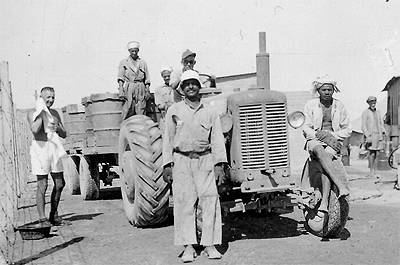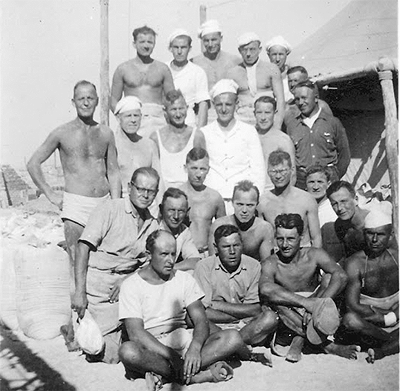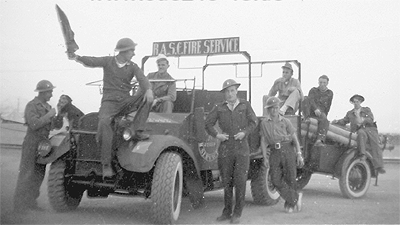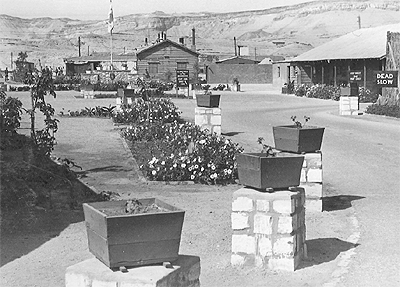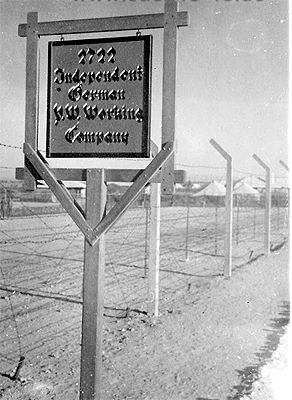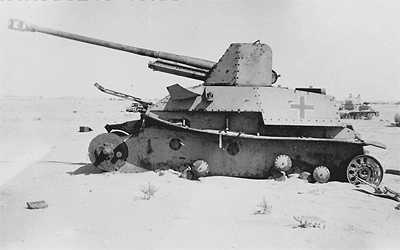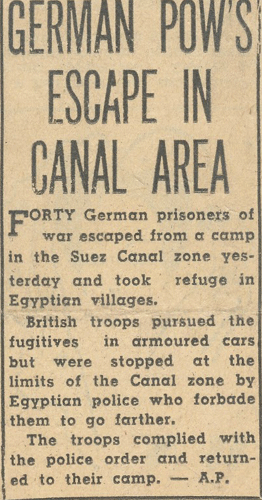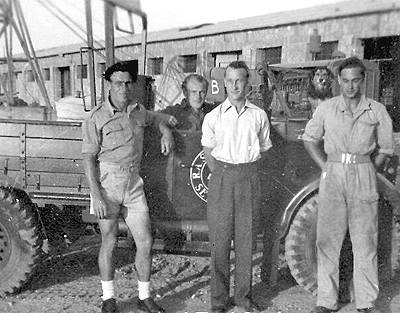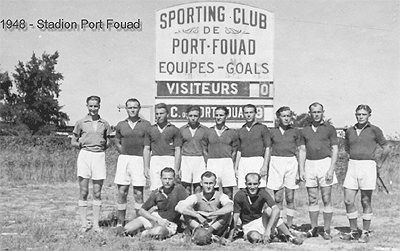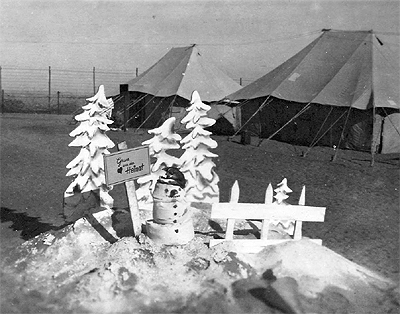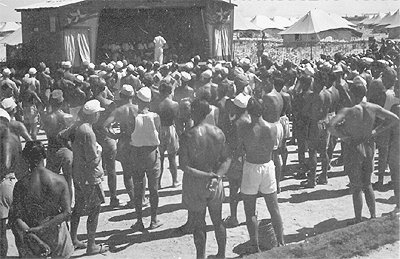PRISONERS OF WAR – EGYPT 1942-1948
The 10 large camps
were mainly located in the area of the Bitter Lake with further camps near
Alexandria and Cairo. At the end of WWII it was reported that some 100,000
German prisoners of war were being detained in these camps.
| Camp 304 |
Helman |
Camp 305 |
Tel el Kebir |
| Camp 306 |
Fayid/Bitter Lake |
Camp 307 |
Fanara/Bitter Lake |
| Camp 308 |
Fayid/Bitter Lake |
Camp 309 |
Fayid/Bitter Lake |
| Camp 310 |
Geneifa/Bitter Lake |
Camp 368 |
Fayid/Bitter Lake |
| Camp 379 |
Quassassin |
Camp 380 |
Fanara/Bitter Lake |
| Camp 381 |
El Daaba |
Camp 382 |
El Daaba |
| Camp 383 |
El Daaba |
|
|
Until the defeat of
Germany the prisoners had lived in guarded camps and did not work as they
were still receiving pay from Germany through Sweden and were able to supplement
their rations and purchase cigarettes and sweets. When Germany collapsed pay
ceased.
These former adversaries
had a common concern with the British troops, repatriation back home to their
families. So when, in 1946, the authorities announced that there was a shortage
of shipping as the ships were needed to transport troops elsewhere and that
any demob would be delayed for six months, there was an outcry from the British
troops and despair on the part of the POWs. A call was made to set up the
Soldiers’ Council and soon a strike was called for. Though it was agreed
to suspend all drill, rosters and work, the majority would not agree not to
do guard duties for fear that the Egyptians may break into the camps and kill
them in their sleep. The first strike was in Tel el Kebir.
Whilst the strike
was on the authorities fell back on greater use of the POWs and in September/October
1946 there were 26 German Independent Working Companies, often controlled
by the Pioneer Corps, of 48,000 men with an additional 4,000 men in ten Artisan
Working Companies. Their work included construction of quarters in the Canal
Zone, motor vehicle workshops, drivers, orderlies etc., including the defusing,
blowing up and shipment of ammunition. Many drove Service vehicles, acted
as wireless mechanics and serving staff in Messes , were cooks and bakers
and about 100 technicians worked for the Royal Navy. For expert work a prisoner
was paid 10 piastres (a few shillings) a day.
Like the British they
longed for repatriation but were in no position to go on strike. Left with
no one to guard them, their own NCOs took command and they carried on with
their duties. While the British troops refused duties, the Germans kept things
running. Camps were run and guarded by the inmates, armed with nothing more
than pickaxe handles. The effect of being employed and able to buy simple
luxuries was extraordinary. As a result of this, the British authorities were
determined more than ever not to part with them.
Prisoners were allowed
to send 2 letters and 4 postcards home per month with no restrictions on the
incoming post. They were allowed to travel 5 miles outside the camp and built
all their own camp amenities themselves including a fine mud-brick stadium
with football pitch. They formed several excellent orchestras with instruments
supplied by the YMCA as well as theatrical groups.
The first repatriation
came in late 1946, with 6,000. In February 1948, there were still some 60,000
awaiting repatriation and repatriation continued throughout ’48, with
one point contention – they were only allowed to take out ten pounds
in wieght worth of goods..





